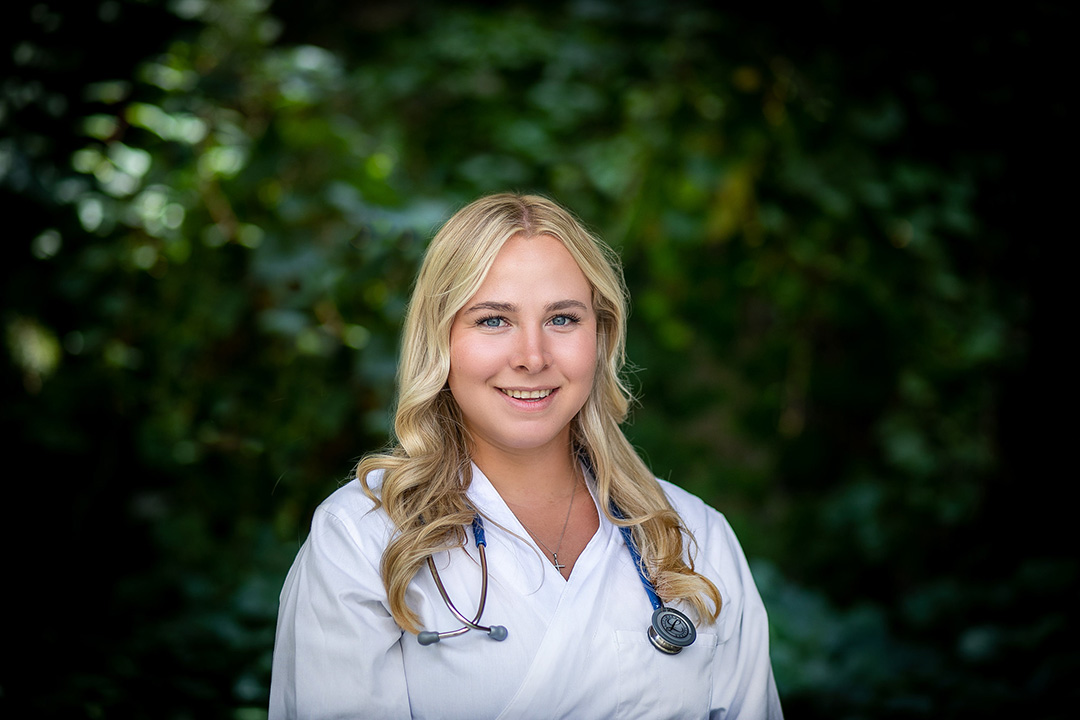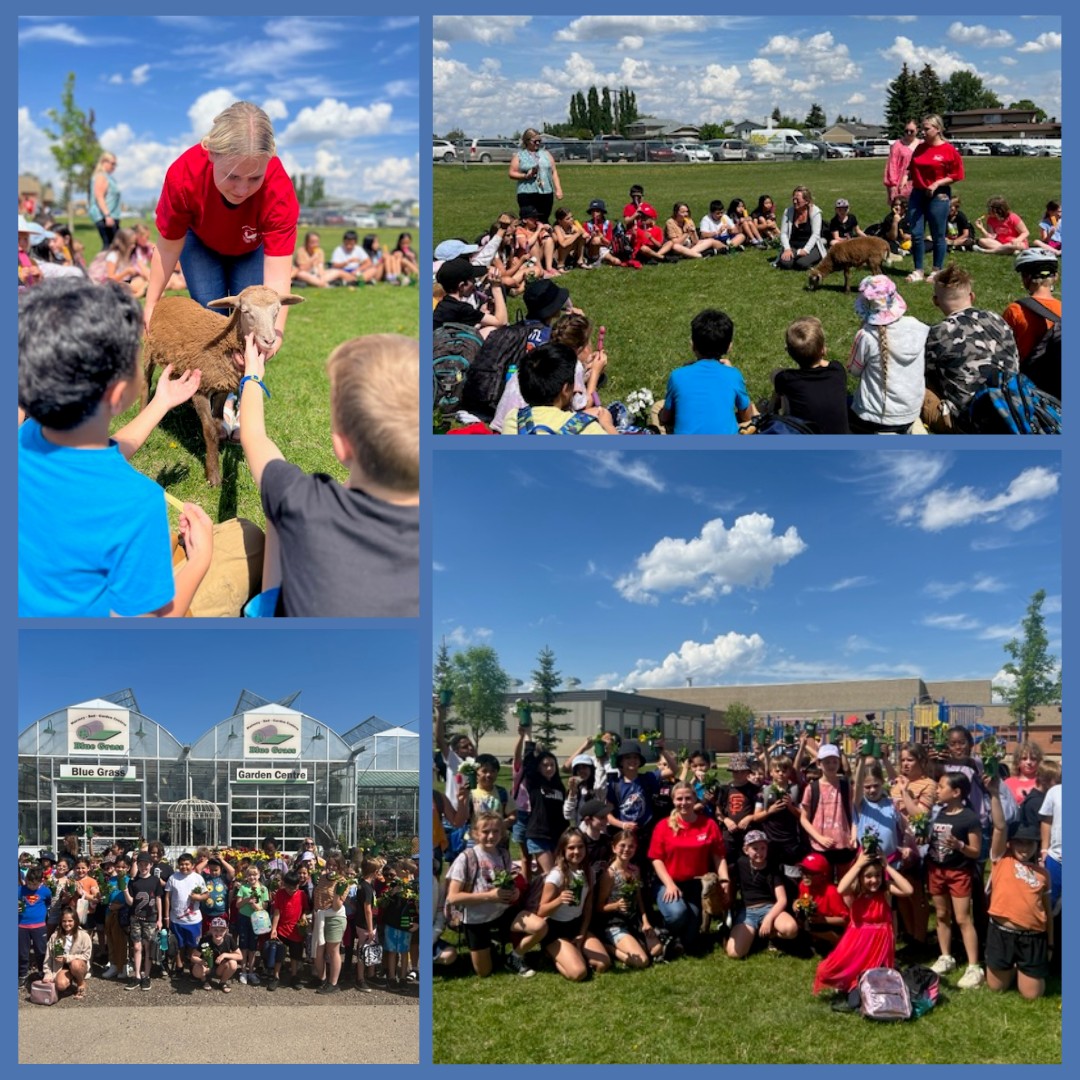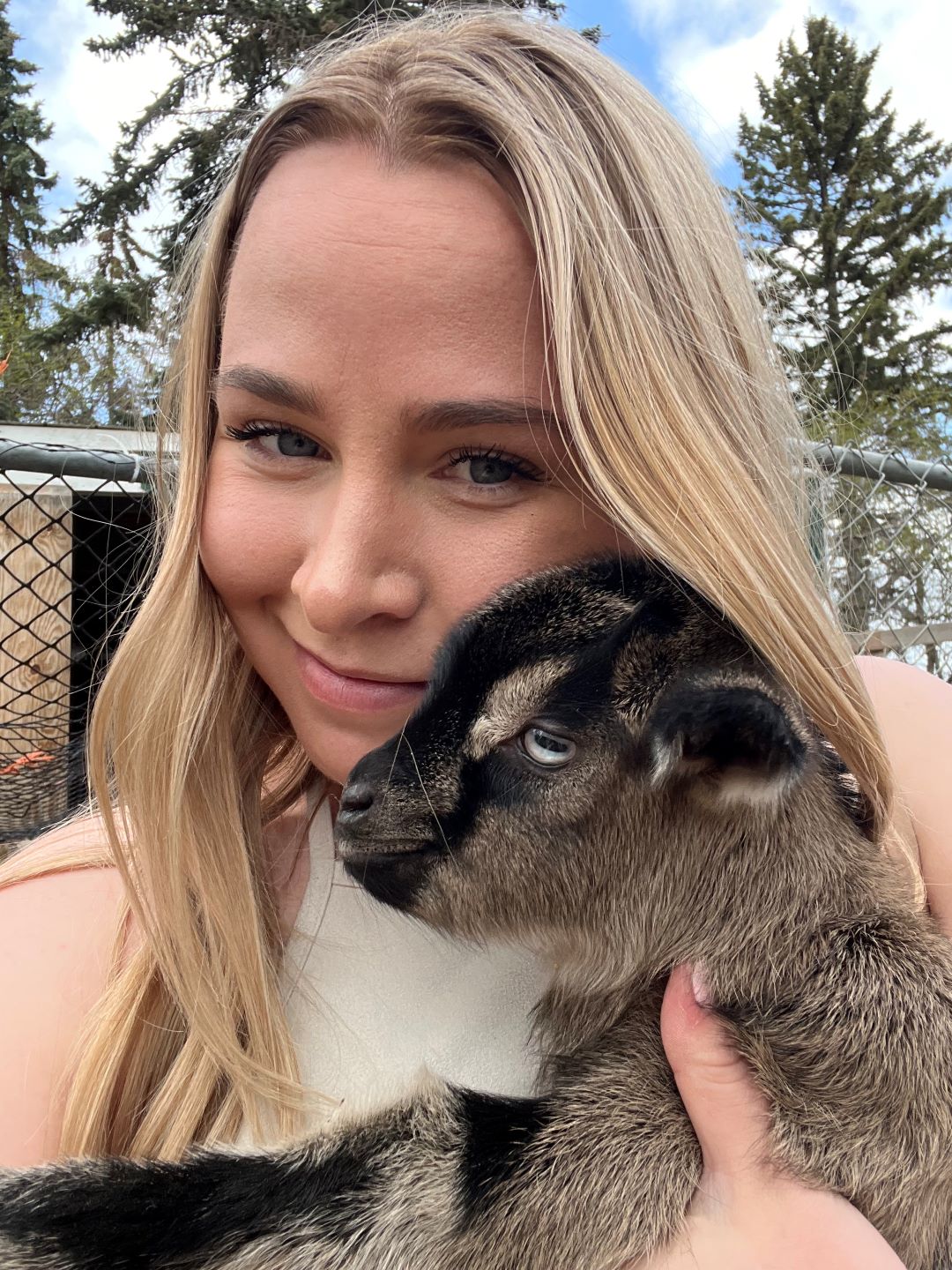
Vet student combines passion for animal care and agriculture
Ella Parcels always wanted to have her own pets, but when she was young, her parents had a rule that she could only get a pet if she learned how to care for it first.
By Lynne GunvilleBefore long, Parcels had mastered the care of fish, stickbugs, hamsters, budgies and parrotlets — the smallest species of the parrot. By the time she was 13, she was raising chickens and operating her first business, “Happy Eggs,” on her family’s farm near Red Deer, Alta.
Her egg sales to family friends allowed Parcels to buy more animals — starting with bottle-baby goat kids and quickly moving on to a variety of creatures that eventually comprised her hobby farm.
“My teen years were spent learning about and then caring for sheep, goats, pigs, peafowl, chickens, turkeys, quail, horses and cows,” says Parcels, now a first-year veterinary student at the Western College of Veterinary Medicine (WCVM).
“Local ‘seasoned’ farmers — sometimes I met them at the local auction mart — took me under their wing to mentor me and assist me with my animals.”
After her farm had grown to include over 100 animals, Parcels decided to share her passion by opening “Ella’s Friendly Farm” to the public and offering on-site tours to preschool and school-age children from local schools and daycares.
She also partnered with local businesses to set up events in the community that created opportunities for people to interact with the animals and learn more about animal husbandry.

During high school, Parcels devoted her spare time to caring for the livestock, building shelters, mending fencing and attending livestock auctions. To support her farm, she also took a part-time job at Blue Grass Garden Centre in Red Deer, Alta. – an experience that really opened her eyes to the knowledge gap between rural and urban consumers.
“I worked to bridge that gap between food production and consumer consumption not only by teaching about gardening but also by bringing bottle-baby animals to the greenhouse for customers to help care for and watch grow,” says Parcels. She eventually helped the greenhouse host events aimed at increasing public knowledge and exposure to animal agriculture.
Although Parcels has always felt a deep love for animals and animal husbandry, she was considering a career in human medicine until she began classes at the University of Saskatchewan (USask). While pursuing a Bachelor of Science in Animal BioScience degree at the College of Agriculture and Bioresources, Parcels realized that a veterinary career would allow her to combine her interest in medicine with her passion for Canadian agriculture.
In addition to attending classes at USask where she was mentored by experts in animal health, science and veterinary medicine, Parcels volunteered at Riverstone Veterinary Services in Sundre, Alta. Her experiences with Dr. Meg Irving and Dr. Curtis Luzi (DVM’03), a WCVM graduate, solidified her decision to pursue a career in veterinary medicine and live the lifestyle of a rural veterinarian.
Parcels was also greatly influenced by Maggie MacIntyre, owner of White Haven Cattle near Red Deer, Alta., who became a cattle producer in the 1950s. Now in her 80s, MacIntyre is still working on her ranch.

“Maggie made a huge impact on me and has been a significant source of inspiration,” says Parcels. “She has been adamant that Canadian agriculture needs veterinarians with the passion and skills I possess. As such, she has been one of my biggest supporters, encouraging me on my journey to attend the WCVM.”
Since Parcels began her veterinary studies at the WCVM in August, she’s particularly enjoyed the classes that provide hands-on experience. She looks forward to establishing lifelong friendships with the students and faculty who share her interests and passions — relationships that will be essential to her growth as a student and as a veterinarian.
She’s grateful for the support of her family who have put up with all of her animal endeavours over the years. As she describes, “they always had her back” — even when there were peafowl roaming the family’s kitchen or baby lambs warming up by the fireplace.
At this point, Parcels is interested in a career that involves food animal production or a rural mixed practice, and based on her interest in community involvement, she looks forward to helping local organizations with projects that support disadvantaged people.
She also plans to continue her commitment to Canadian agriculture and adhering to the principles she outlined in her undergraduate capstone thesis on, which focused on public trust and the social licence of Canadian agriculture.
“The geographical shift of Canada’s population from rural to urban has created a chasm between the urban consumer and rural producers,” says Parcels. “With a global exponential increase in the demand for food, it is essential that we bridge knowledge and trust for Canadians to be confident about food production. I’m committed to an ongoing role to support Canadian farmers on this critical path."
